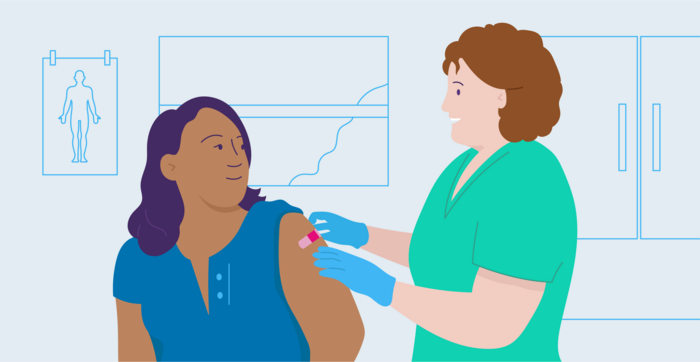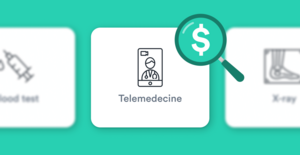Key points
- The flu shot is a crucial preventative measure against the influenza virus, especially for high-risk individuals.
- Flu shots are recommended for everyone over six months old, with personal health factors considered.
- The best time to get a flu shot is before flu season, typically in September or October.
- Flu shots are generally safe, effective, and widely available, often at low or no cost.

This story has been updated for the 2025–2025 flu season.
The flu can pose serious health risks, especially for vulnerable populations such as older adults, young children, and those with chronic conditions. This highly contagious respiratory infection can lead to serious complications, including pneumonia and hospitalization. One of the most effective ways to protect yourself and your loved ones is by getting an annual flu shot before the season begins. This year’s vaccine has been updated for new circulating strains. Here’s what you should know about the 2025–26 flu vaccine and why it matters.
Should you get the flu shot?
The CDC recommends an annual flu shot for everyone 6 months and older, unless contraindicated. It’s especially important if you’re at high risk for flu complications — including people with chronic illness, compromised immune systems, pregnancy, or advanced age — or if you live or work around vulnerable populations. Talk with your healthcare provider to get personalized recommendations for this year’s flu vaccine.
8 things you should know about the flu shot
As flu season approaches, understanding the flu shot's importance and effectiveness is crucial for making informed health decisions. Vaccination plays a vital role in protecting not only yourself but also those around you from the potentially severe consequences of influenza, according to the CDC. With various misconceptions and questions surrounding the flu vaccine, it’s essential to clarify the facts to ensure you and your family are well-prepared. By being informed about the flu shot, you can better appreciate its benefits and make proactive choices to safeguard your health this season.
1. The best time to get a flu shot is before flu season
The 2025–26 flu season will likely begin in October and peak between December and February. The CDC recommends getting vaccinated in September or October to ensure full immunity before flu activity ramps up. Shots may be available as early as August in some locations.
2. The flu shot can prevent severe illness and death
The flu should not be confused with the common cold, as it has the potential to be far more dangerous and severe. Between 2010 and 2020, the flu resulted in up to 810,000 hospitalizations in the United States and up to 61,000 deaths annually.
According to the CDC, the flu vaccine can help prevent people from catching the flu and from suffering severe illness and death in the event they catch a new strain of the flu virus after receiving the vaccine. If you or any of your family members are at high risk for flu complications, the CDC recommends arranging to get flu shots as soon as they’re available to prevent severe illness and complications, including death.
3. The flu shot can help protect people in the high-risk category
According to the CDC, certain people are at higher risk for flu complications than others based on factors including age, disabilities, chronic health conditions, and whether they spend lots of time in environments with other high-risk individuals. The flu vaccination can help prevent these vulnerable populations from getting the flu virus and also prevent you from spreading the flu to these individuals if they are unable to get the flu vaccine for any reason.
People at high risk for flu complications include:
-
Adults aged 65 years and older
-
Children aged 2 years and younger
-
Adults with chronic health conditions including asthma, diabetes, and heart disease
-
Children with neurologic conditions including epilepsy, cerebral palsy, and brain disorders
-
Pregnant women
-
Racial and ethnic minority groups including Blacks, American Indians, and Latinos
-
People who are obese
-
People with weakened immune systems and autoimmune disorders
-
People who live in nursing homes and long-term care facilities
-
People who work in healthcare facilities, correctional facilities, or homeless shelters
Ask your doctor to confirm whether you and your family members can safely get the flu vaccine based on age and other factors. Your doctor can review your family’s medical history and recommend the best flu vaccines.
4. Prevention is the best way to treat the flu
One of the best ways to treat the flu is to prevent yourself from getting it in the first place with a flu vaccination. Flu symptoms typically last between three and seven days for most people and for up to two weeks in older adults and those with chronic lung disease.
Regardless of how long the flu lasts, its symptoms are often extremely unpleasant. Flu symptoms include:
-
Fever and chills
-
Sore throat
-
Cough
-
Runny or stuffy nose
-
Muscle and body aches
-
Headache
-
Fatigue
-
Vomiting
-
Diarrhea
5. The flu shot is safe and effective
The CDC states that influenza vaccines are extremely safe and have an excellent safety profile. For more than 50 years, the influenza vaccine has been safely received by hundreds of millions of Americans, and an overwhelming amount of scientific evidence supports the safety of this vaccine.
The flu shot is also shown to be effective at preventing the flu and reducing the risk of severe illness from the flu. According to the CDC, the influenza vaccine reduces the risk of flu illness by between 40% and 60% during flu season. According to the CDC, factors that can influence the effectiveness of an annual vaccine are the characteristics of the person being vaccinated, and the similarity between the flu viruses going around and the flu viruses that year’s vaccine is designed to prevent.
6. The flu shot is widely available and easy to find
Before and during flu season, the flu shot is available in nearly every type of healthcare setting and places that offer healthcare services and products. Urgent care clinics, pediatric urgent care centers, walk-in clinics, pharmacies, grocery stores, primary care doctors, retail stores, colleges, universities, and workplaces are common places to get flu shots.
Use Solv to locate top-rated flu shot providers in your area. Solv gives you the option to explore flu shot providers with high ratings and contact the provider directly from its website to book a same-day or next-day appointment for a flu shot.
7. Flu shots are often free or low in cost
Flu vaccines are usually completely free for anyone who has a health insurance plan. Many healthcare providers do not require a copay for a flu shot.
According to GoodRX, without health insurance, the flu shot can range in cost between $0 and $50. Factors that influence the cost of a flu shot include the rates set by the provider, the provider’s geographical location, and the type of flu shot being given.
Some flu shot providers such as pharmacies and supermarkets may offer special discounts or coupons for the flu vaccine. For example, those who have membership cards to these stores may receive a free or low-cost flu vaccination.
It also helps to check with your employer or school, as many workplaces, colleges, and universities usually offer free flu shots to their employees and students.
8. Flu vaccine side effects are usually mild and rare
The flu vaccine can cause side effects like any other medication or medical treatment. However, side effects of the flu vaccine are usually mild and resolve on their own within a few days.
According to the CDC, common side effects of the flu vaccination include:
-
Headache
-
Fever
-
Nausea
-
Muscle aches
-
Fainting
-
Soreness, redness, and swelling at the injection site
Guillain-Barré syndrome (GBS) is a rare side effect of the flu vaccine. GBS is a condition in which the immune system attacks the nerves to cause muscle pain and weakness, fatigue, rapid heart rate, and difficulty with speaking, swallowing, and breathing. The CDC estimates there are no more than two cases of GBS per one million people who get the flu vaccine.
Some people may experience an allergic reaction to one or more ingredients in the flu vaccine. Signs of an allergic reaction to the flu vaccine include:
-
Rapid heart rate
-
Dizziness
-
Weakness
-
Pale skin
-
Hives
-
Difficulty breathing
-
Wheezing
-
Hoarse voice
-
Swelling around the eyes and lips
According to the CDC, a severe, life-threatening reaction to the vaccine is rare and requires immediate medical attention. Notify your doctor or emergency medical services right away if you or a family member experiences the above symptoms within a few minutes to a few hours after getting the flu vaccine.
Solv is an easy, convenient way to locate flu vaccine providers in your area, and it also helps you book your appointment online, skip the paperwork, and check in using the Solv app. Solv can give you and your family peace of mind knowing you can access highly-rated medical care the moment you need it.
FAQs
Who should get the flu shot?
Almost everyone over the age of six months should get the flu shot, especially individuals with high risk factors such as weakened immune systems or chronic conditions.
When is the best time to get a flu shot?
The best time to get a flu shot is before flu season begins, typically in September or October.
What are the benefits of getting a flu shot?
The flu shot reduces the risk of contracting the flu, mitigates the spread of the virus, and can prevent severe illness and death.
Are there any side effects of the flu shot?
Yes, common side effects include headache, fever, nausea, muscle aches, and soreness at the injection site. Severe side effects are rare.
How much does the flu shot cost?
The flu shot is usually free for individuals with health insurance. Without insurance, the cost can range from $0 to $50, depending on various factors.
Where can I get a flu shot?
The flu shot is widely available in nearly every type of healthcare setting and places that offer healthcare services and products. These include urgent care clinics, walk-in clinics, pharmacies, grocery stores, primary care doctors, retail stores, colleges, universities, and workplaces.
How much does a flu shot cost?
Flu shots are usually free for anyone who has a health insurance plan. Without health insurance, the cost can range between $0 and $50, depending on various factors.
What are the side effects of the flu vaccine?
Side effects of the flu vaccine are usually mild and resolve on their own within a few days. They include headache, fever, nausea, muscle aches, fainting, and soreness, redness, and swelling at the injection site. In rare cases, severe side effects like Guillain-Barré syndrome or allergic reactions can occur.









